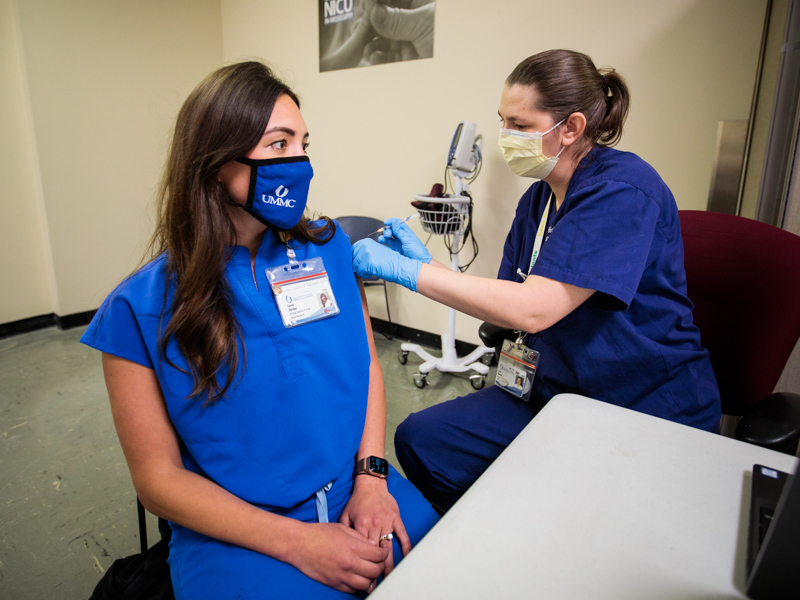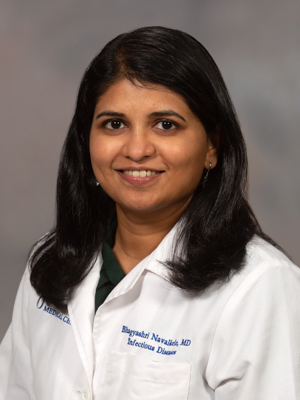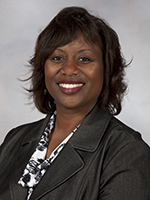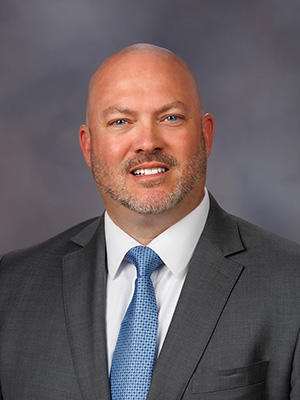Haven't received the COVID-19 vaccine? Here’s why you should

Of the 217 employees and student at the University of Mississippi Medical Center who tested positive for COVID-19 between Jan. 4 - April 30 of this year, all but a small handful hadn’t gotten the immunization that almost certainly would have protected them.

“It’s clear that those who are unvaccinated are at the highest risk of getting the COVID infection. It’s clear that vaccination works,” said Dr. Bhagyashri Navalkele, assistant professor in the Division of Infectious Diseases and medical director of infection prevention. “The vaccine is 90 to 95 percent effective.”
Navalkele and her Infectious Diseases colleagues are tracking how many employees and students have become infected, whether those infected had not been immunized, whether they’d received only the first of two doses of the Pfizer or Moderna vaccine, or whether they became infected despite being fully vaccinated.
Of those testing positive between Jan. 4 and April 30, 204 had received no vaccine; seven had received one dose; and six were infected two or more weeks after full vaccination. Such infections are considered rare “breakthrough” cases.
Between Dec. 16 and April 30, a total of 5,855 employees and students had received the first vaccine dose, and 5,687 had received the second dose, through UMMC’s Student and Employee Health vaccine clinic operations. That number likely does not represent the true number of vaccinated employees and students; some may have chosen to be vaccinated at one of the Medical Center’s other four vaccine locations, or one of the many Mississippi State Department of Health drive-through locations.
Overall, UMMC has about 9,885 employees, with 9,481 located on the Jackson campus, which encompasses the main campus, the Jackson Medical Mall, University Physicians Pavilion, University Physicians Belhaven and the Medical Tower.
For the spring semester, UMMC has a total 2,991 learners, which includes 2,304 students and 687 residents and fellows.
In March – before the vaccine opened up to all Mississippians age 16 and above – the School of Medicine surveyed its approximately 650 students “to get a sense about the number of them who had the vaccine, or who were planning to vaccinate when it was available to them,” said Dr. Loretta Jackson-Williams, vice dean for medical education and professor of emergency medicine.
The breakdown: M1 students, 61.8 percent vaccinated and 87 percent either vaccinated or planning to get it; M2 students, 67.8 percent vaccinated and 89.3 percent vaccinated or planning to; and M3 students, 79.4 percent vaccinated and 89.3 percent vaccinated or planning to.

“Practically all of our M4 students were vaccinated,” Jackson-Williams said. “The clinical students really have a sense of what has happened with COVID-19. They’ve been right there, seeing what’s going on. That’s why practically all of the M3 and M4 students are vaccinated or planning to.”
The issue she sees with unvaccinated students, Jackson-Williams said, is “the vaccine’s proven effectiveness, or proven minimal side effects. It’s not a hesitancy on whether or not having a vaccine is a good idea. We are past that with most of our students.
“What we are pushing toward is proving the effectiveness and safety of the vaccine,” she said. “With some of them, time will be the ultimate factor. They are all keenly aware that there is no safe space, and there is no protection for them other than the vaccine. And, they’re as likely to run into someone with COVID at Walmart as they are in a clinical program.”
It’s very important for all employees – including the Medical Center’s approximately 3,000 nurses – to receive the vaccine, said Jason Zimmerman, a veteran registered nurse and interim chief nursing executive officer.

“Employees who are vaccinated are protecting not just themselves, but those around them, including our patients,” Zimmerman said. “We encourage everyone to make an appointment for a vaccine. This pandemic is not over, and we need many more people to get vaccinated to make our workplace as safe as we can.”
Physical therapist Currie Fletcher got both of her Pfizer vaccines at UMMC not just for herself, but for others. “It’s to protect me and the people I serve,” she said.
“I feel like I’ll be wearing a mask in Kroger for a long time,” Fletcher said. And if continuing to wear one is a small but necessary step to resuming normal activities, “I’m very willing to do that,” she said.
Schedule your vaccine by going to the UMMC Intranet, then clicking the red bar at the top of the page. View the Centers for Disease Control and Prevention’s explanation on the safety of vaccines here.
For an updated list of frequently asked questions on the vaccine, go here. Learn how to protect yourself and others after you’ve been vaccinated here.
Of UMMC’s six breakthrough cases, one was asymptomatic and four reported mild infections, Navalkele said. Another was symptomatic, but so newly diagnosed that the severity of infection is still unclear. One person was hospitalized, but it’s unsure as to whether COVID was the deciding factor.
And although breakthrough cases happen, she said, “you have to look at the complete picture. We shouldn’t just focus on case numbers, but instead on the risk of infection being much, much lower in those who are vaccinated.
“We want to make sure everyone is safe – our patients, our workforce and our students,” Navalkele said. “One of the ways we can ensure that is by vaccination.”
Even stepping up to get the initial dose has benefits, she said. “Studies done so far show that two weeks after the second dose, the risk of them having an asymptomatic infection and transmitting it to others goes down 75 to 90 percent. And if they do get an infection after one or two doses, it’s usually mild or asymptomatic.”
Navalkele said she’s surprised that more employees and students haven’t gotten the vaccine. “All of our health care workers have been through a lot during this past year,” she said. “We’ve seen how the pandemic impacted our hospital and our workforce. At one point, the ICUs and 2 North and 2 South were all full. There was a lot of employee burnout.
“We’ve discussed how we can end this pandemic, and that the vaccine would be our answer to bringing a safe end to it,” she said. “That’s been our communication since the beginning.”
“Vaccinated employees certainly enjoy additional safeguards and freedoms that are recommended by the CDC and they serve as examples to others not in health care,” said Dr. Alan Jones, associate vice chancellor for clinical affairs and professor of emergency medicine. “Vaccination protects everyone, not just the vaccine recipients, but most importantly, our patients.”

